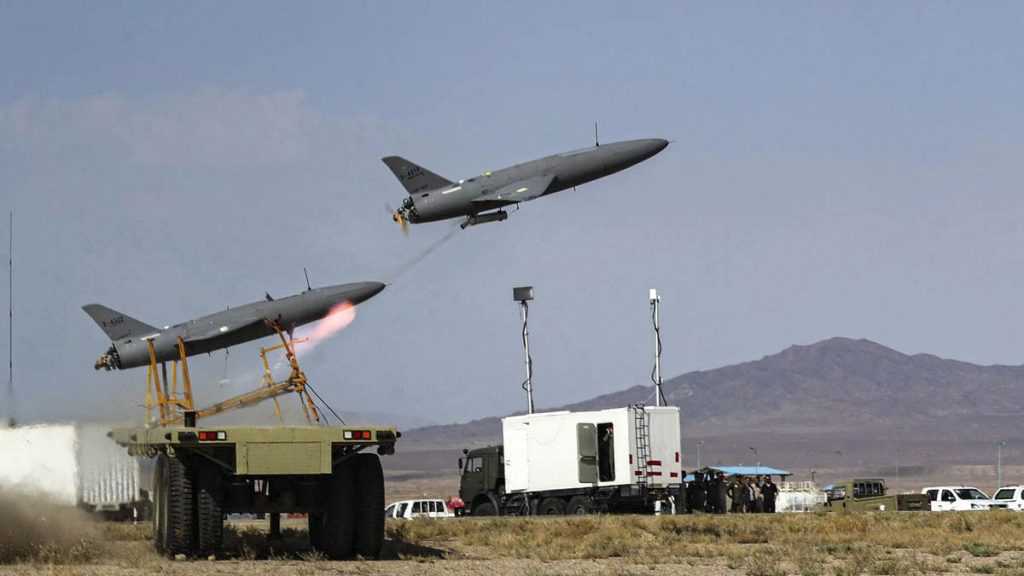The European Union has recently imposed sanctions on several Iranian airlines and a top diplomat for supplying Russia with ballistic missiles used in the war in Ukraine. The sanctions were approved by foreign affairs ministers in Luxembourg and targeted three Iranian airlines, two procurement firms involved in the transfer of unmanned aerial vehicles and related components, and two companies involved in the production of rocket propellant. These designations also included individuals such as the country’s Deputy Defence Minister, officials from the Islamic Revolutionary Guard Corps, and managing directors of EU-listed companies. The sanctions include asset freezes and travel bans for the individuals and prohibit EU entities and individuals from conducting business with them.
European Commission chief Ursula von der Leyen welcomed the new sanctions, stating that Iran’s support for Russia’s aggression against Ukraine is unacceptable and must stop. She emphasized that more actions are needed to address the situation. The meeting in Luxembourg also discussed providing further assistance to Ukraine in its conflict with Russia, including bypassing Hungary’s veto on military support and offering aid to the energy sector. Ukraine’s Foreign Affairs Minister called for a strong response to Russian attacks on civilian vessels, increased energy assistance before winter, and clarified that Ukraine is not ready to make territorial concessions.
David O’Sullivan, the international special envoy for EU sanctions implementation, participated in the meeting to discuss ways to prevent circumvention that allows Moscow to access technology and funds for its illegal aggression. Latvia’s foreign affairs minister highlighted concerns about EU companies continuing to export goods to Russia, which undermines existing sanctions. The EU has imposed 14 sanctions packages against Russia for its war on Ukraine, targeting exports of oil and prohibiting the export of dual-purpose goods, raw materials, and luxury products. The discussion also included the deteriorating situation in the Middle East, highlighting ongoing concerns in the region.
The sanctions imposed by the EU on Iranian airlines and individuals linked to missile transfers to Russia underscore the international community’s efforts to address Iran’s support for Russian aggression in Ukraine. The asset freezes and travel bans serve as punitive measures to deter further support for destabilizing activities. The involvement of European Commission chief Ursula von der Leyen and other high-ranking officials in endorsing these sanctions indicates a united front against Iran’s actions. Additionally, the EU’s focus on providing assistance to Ukraine and addressing concerns about circumvention of sanctions highlights the comprehensive approach to tackling the conflict in Ukraine and preventing further aggression from Russia.
The meeting in Luxembourg where the sanctions were approved also addressed the need for continued support to Ukraine in its conflict with Russia, highlighting the importance of international solidarity in standing up to Russian aggression. The discussion around circumvention of sanctions and the need for further measures to prevent it demonstrates the EU’s commitment to enforcing sanctions effectively and preventing Russia from accessing crucial resources for its aggression. The ongoing efforts to address the deteriorating situation in the Middle East show the EU’s engagement in regional conflicts and crises beyond its immediate vicinity, underscoring its role as a global player in promoting peace and stability.
Overall, the new sanctions imposed by the EU on Iranian airlines and individuals involved in supporting Russian aggression in Ukraine, along with the discussions around circumvention of sanctions and support for Ukraine, reflect a coordinated and comprehensive approach to addressing ongoing conflicts and crises. The EU’s commitment to enforcing sanctions and preventing destabilizing activities demonstrates its determination to uphold international norms and promote peace and security in the face of regional and global challenges. Through these actions, the EU reaffirms its role as a key player in responding to emerging threats and conflicts, and as a proactive force for stability and peace in the international community.


